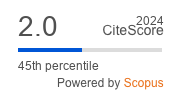Action research: Combining research and problem solving for socio-technical engineering and innovation management research
DOI:
https://doi.org/10.23726/cij.2024.1509Keywords:
action research, action innovation management research, socio-technical systemsAbstract
Action Research is an established and powerful applied research approach that combines scientific knowledge creation with practical problem-solving and competence building. This article provides a structured overview of the underlying characteristics of action research, suitable areas of application, and a framework to help structure the variety of action research approaches. The application of action research is illustrated using the example of Action Innovation Management Research, which is particularly useful for complex socio-technical engineering and innovation management research.
References
Brydon-Miller, M., Greenwood, D. and Maguire, P. (2003), Why Action Research?, Action Research, Vol. 1 No. 1, pp. 9–28.
Eikeland, O. (2006), Validity in Action Research - Validity of Action Research, in Nielsen, K.A. and Svensson, L. (Eds.), Action and interactive research - Beyond practice and theory, Shaker, Maastricht, pp. 193–240.
Flyvbjerg, B. and Sampson, S. (2011), Making social science matter: Why social inquiry fails and how it can succeed again, 13. printing, Cambridge Univ. Press, Cambridge.
Guertler, M.R., Kriz, A. and Sick, N. (2020), Encouraging and enabling action research in innovation management, R&D Management, Vol. 50 No. 3, pp. 380–395.
Guertler, M.R., Sick, N. and Kriz, A. (2019), A Discipline-Spanning Overview of Action Research and Its Implications for Technology and Innovation Management, Technology Innovation Management Review, Vol. 9 No. 4, pp. 48–65.
Kaplan, R.S. (1998), Innovation Action Research: Creating New Management Theory and Practice, Journal of Management Accounting Research, Vol. 10, pp. 89–118.
Levin, M. (2012), Academic integrity in action research, Action Research, Vol. 10 No. 2, pp. 133–149.
Lewin, K. (1946), Action Research and Minority Problems, Journal of Social Issues, Vol. 2 No. 4, pp. 34–46.
Lindhult, E. and Axelsson, K. (2021), The logic and integration of coproductive research approaches, Int J Managing Projects in Bus, Vol. 14 No. 1, pp. 13–35.
Mertler, C.A. (2016), Action research: Improving schools and empowering educators, Fifth edition, SAGE, Los Angeles.
Mumford, E. (2001), Advice for an action researcher, Information Technology & People, Vol. 14 No. 1, pp. 12–27.
Ozanne, J.L. and Saatcioglu, B. (2008), Participatory Action Research, Journal of Consumer Research, Vol. 35 No. 3, pp. 423–439.
Sørensen, F., Mattsson, J. and Sundbo, J. (2010), Experimental methods in innovation research, Research Policy, Vol. 39 No. 3, pp. 313–322.
Susman, G.I. and Evered, R.D. (1978), An Assessment of the Scientific Merits of Action Research, Administrative Science Quarterly, Vol. 23 No. 4, p. 582.
Downloads
Published
How to Cite
License
Copyright (c) 2024 Matthias Guertler, Nathalie Sick

This work is licensed under a Creative Commons Attribution 4.0 International License.
Authors who publish with this journal agree to the following terms:
- Authors retain copyright and grant the journal right of first publication with the work simultaneously licensed under a Creative Commons Attribution License that allows others to share the work with an acknowledgement of the work's authorship and initial publication in this journal.
- Authors are able to enter into separate, additional contractual arrangements for the non-exclusive distribution of the journal's published version of the work (e.g., post it to an institutional repository or publish it in a book), with an acknowledgement of its initial publication in this journal.
- Authors are permitted and encouraged to post their work online (e.g., in institutional repositories or on their website) prior to and during the submission process, as it can lead to productive exchanges, as well as earlier and greater citation of published work (See The Effect of Open Access).


